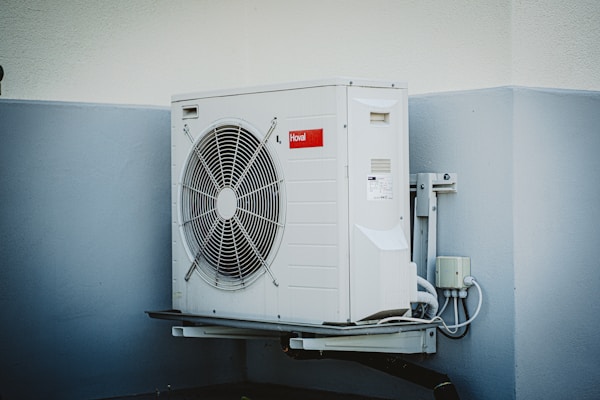Are you the proud owner of a heat pump and want to make sure it's operating efficiently? Regular maintenance is crucial to ensure optimal performance and longevity. Whether you have a new heat pump or an older model, you can follow some simple tips to keep it in top condition. In this article, we'll explore some essential heat pump maintenance tips. Keep reading to learn more about how to keep your heat pump running smoothly all year round.
Check refrigerant levels.

One of the essential tasks in maintaining a heat pump is checking the refrigerant levels. Refrigerant serves as the heat transfer agent in your heat pump, allowing the system to absorb heat from the surrounding air and transfer it indoors. So how often does a heat pump need freon? The refrigerant in your HVAC system should last as long as the unit itself, or about 15 years. However, over time, refrigerant levels can drop due to leaks or other issues, which can cause your heat pump to malfunction or even fail.
Checking refrigerant levels regularly can help you catch this problem early and prevent more extensive damage to your heat pump. To check the refrigerant levels in your heat pump, you'll need to hire a professional HVAC technician. They'll use specialized equipment to measure the levels of refrigerant in your system and identify any leaks or other issues. If they find that your refrigerant levels are low, they'll typically add more refrigerant to restore your system to the appropriate level. Regularly ensuring that refrigerant levels are at the correct amount can help keep energy bills low and prevent problems down the road.
Change air filters regularly.
One important aspect of maintaining your heat pump is to change your air filters regularly. Heat pumps work by circulating air through your home, extracting heat from it in the winter and cooling it in the summer. This means that the air filters in your heat pump system play a crucial role in maintaining its efficiency and performance. Over time, filters can become clogged with dust and debris, obstructing airflow and reducing the system's overall efficiency.
In addition to causing your heat pump to work harder to maintain a comfortable indoor temperature, dirty air filters can also lead to poor indoor air quality. This is because the filters trap airborne particles and pollutants, preventing them from circulating throughout your home. However, when filters are dirty or clogged, these pollutants can build up and even be released back into the air you breathe. By replacing your air filters regularly, you can improve your indoor air quality, reduce your energy bills, and extend the life of your heat pump system.
Keep the coils clean.

One of the critical aspects of maintaining your heat pump is keeping the coils clean. The coils are responsible for transferring heat during the heating and cooling process. Dirty or clogged coils can hinder the efficiency of the unit, increase energy usage, and potentially lead to system breakdowns.
To prevent these issues, it's recommended that you clean your heat pump coils every six months or more frequently if the unit is located in a dusty or high-traffic area. Cleaning the coils is a straightforward process that involves removing any debris, dirt, or leaves that may have accumulated on the outdoor unit. This can be done with a soft brush or by using a garden hose with a low-pressure nozzle. For more stubborn or persistent dirt, a coil cleaner solution can be used with caution.
Keeping the coils clean not only helps to promote the proper functioning of your unit, but it can also extend the lifespan of your heat pump. Neglecting this critical maintenance task will not only lead to higher energy bills but can also cause costly repairs or even complete system replacements.
Overall, regular maintenance of heat pumps is crucial for ensuring efficient operation, improved indoor air quality, and increased longevity of the system. By following the recommended heat pump maintenance tips, you can avoid costly repairs and replacements, reduce energy bills, and enjoy optimal comfort levels throughout the year. Additionally, it is suggested that you invest in professional seasonal maintenance. Altogether, doing regular heat pump maintenance is a smart decision that can save you both time and money in the long run.






